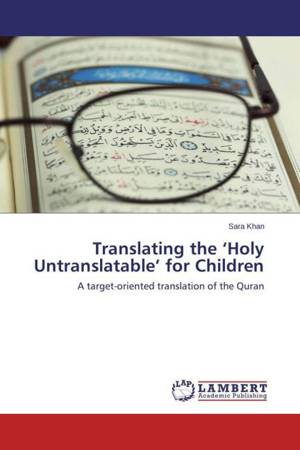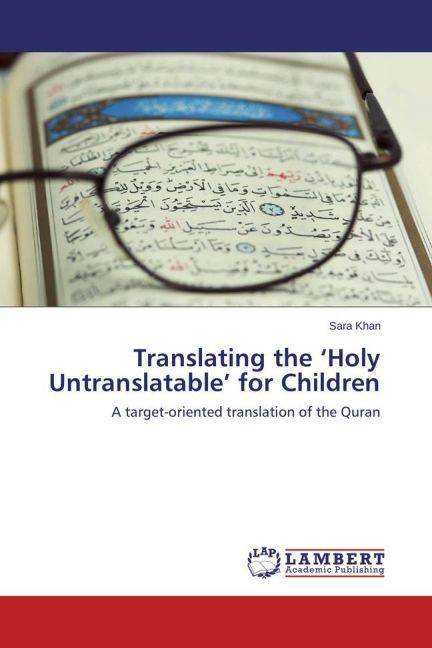
- Afhalen na 1 uur in een winkel met voorraad
- Gratis thuislevering in België vanaf € 30
- Ruim aanbod met 7 miljoen producten
- Afhalen na 1 uur in een winkel met voorraad
- Gratis thuislevering in België vanaf € 30
- Ruim aanbod met 7 miljoen producten
Zoeken
Translating the 'Holy Untranslatable' for Children
A target-oriented translation of the Quran
Sara Khan
Paperback | Engels
€ 32,95
+ 65 punten
Omschrijving
My First Quran: Storybook is an adaptation of the holy book of Islam written specifically for children. This book aims to explore whether it can be categorised as a target-oriented translation that conforms to the norms of the intended target readership, rather than prioritising the language and culture of the original Arabic text like most, if not all other existing translations. This will be done by examining the text, using a descriptive-explanatory framework as advocated by Gideon Toury, and finding answers to the following questions: which strategies have been adopted by the translator of My First Quran: Storybook and how do these strategies conform to the expectations of the intended target readership? The typical translation strategies and norms in the translation of children's literature are discussed. Toury's notion of norms and more specifically his distinction of acceptability versus adequacy is used in order to establish which category My First Quran: Storybook belongs to. Due to the interdisciplinary nature, studies like this may be of interest to academics from disciplines of Translation Studies as well as Sociology, History, Theology and Intercultural Studies.
Specificaties
Betrokkenen
- Auteur(s):
- Uitgeverij:
Inhoud
- Aantal bladzijden:
- 68
- Taal:
- Engels
Eigenschappen
- Productcode (EAN):
- 9783659777929
- Verschijningsdatum:
- 8/09/2015
- Uitvoering:
- Paperback
- Afmetingen:
- 150 mm x 220 mm
- Gewicht:
- 113 g

Alleen bij Standaard Boekhandel
+ 65 punten op je klantenkaart van Standaard Boekhandel
Beoordelingen
We publiceren alleen reviews die voldoen aan de voorwaarden voor reviews. Bekijk onze voorwaarden voor reviews.







